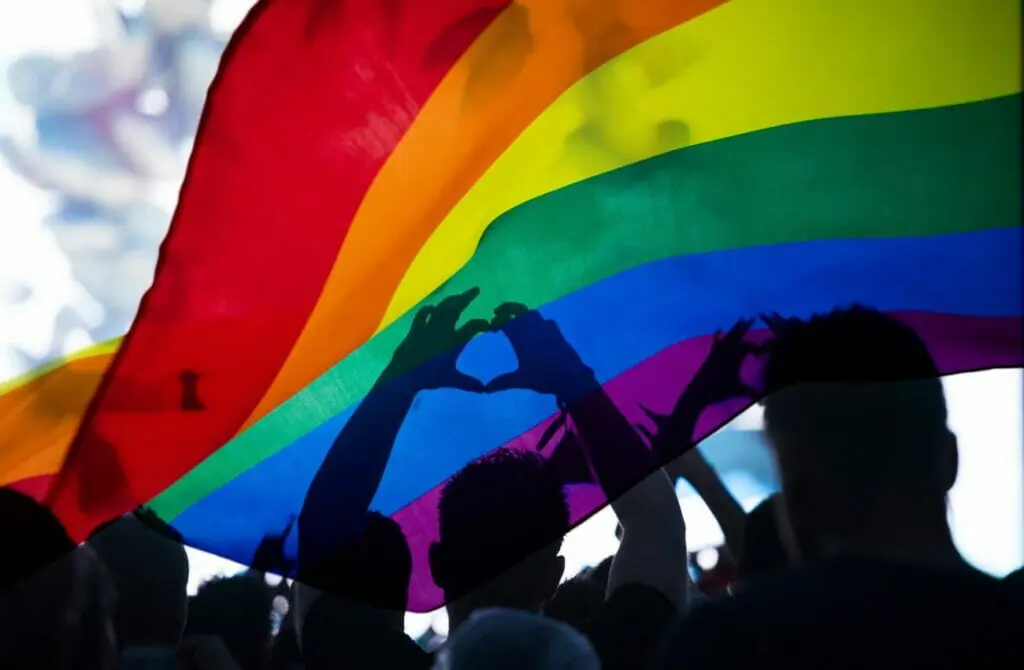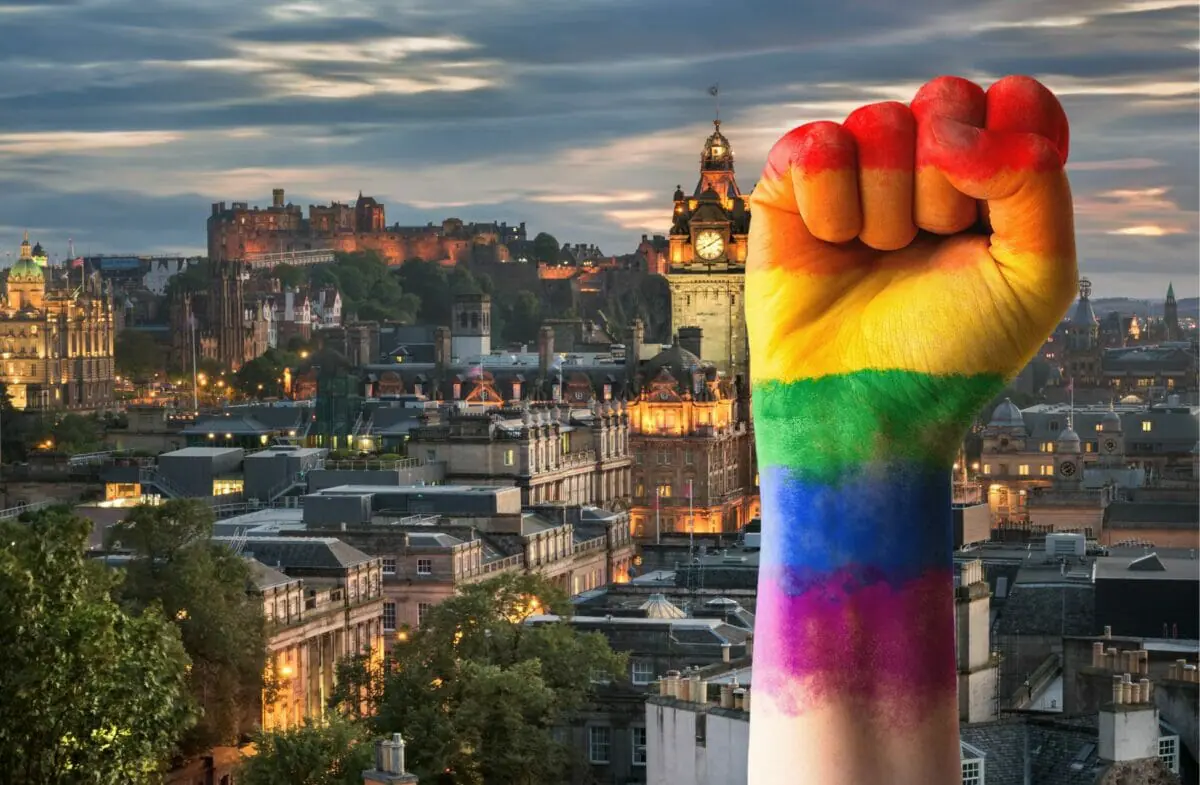LGBT rights in the United Kingdom have experienced significant progress over the years, with legislative changes and growing social acceptance contributing to an overall improvement in the quality of life for the community.
Locals and tourists alike can observe a more accepting climate toward LGBT individuals, but one must remain cautious in understanding that the situation can change, and bad actors are present in every country.
Protection and support for LGBT individuals in the UK is often achieved through the efforts of advocacy groups, such as Stonewall, working toward further advancements in rights and equality. Visitors to the UK must seek current information and advice before traveling, as situations can evolve, and outdated knowledge may not suffice. Staying vigilant and aware of your surroundings is always essential.
As the social landscape in the United Kingdom transforms with time, it is vital to stay informed and connected to ensure the safety and well-being of the LGBT community and its supporters. The UK has made considerable headway in terms of LGBT rights, but recognizing their progress and understanding that work still remains can significantly impact tourists’ and locals’ experiences.
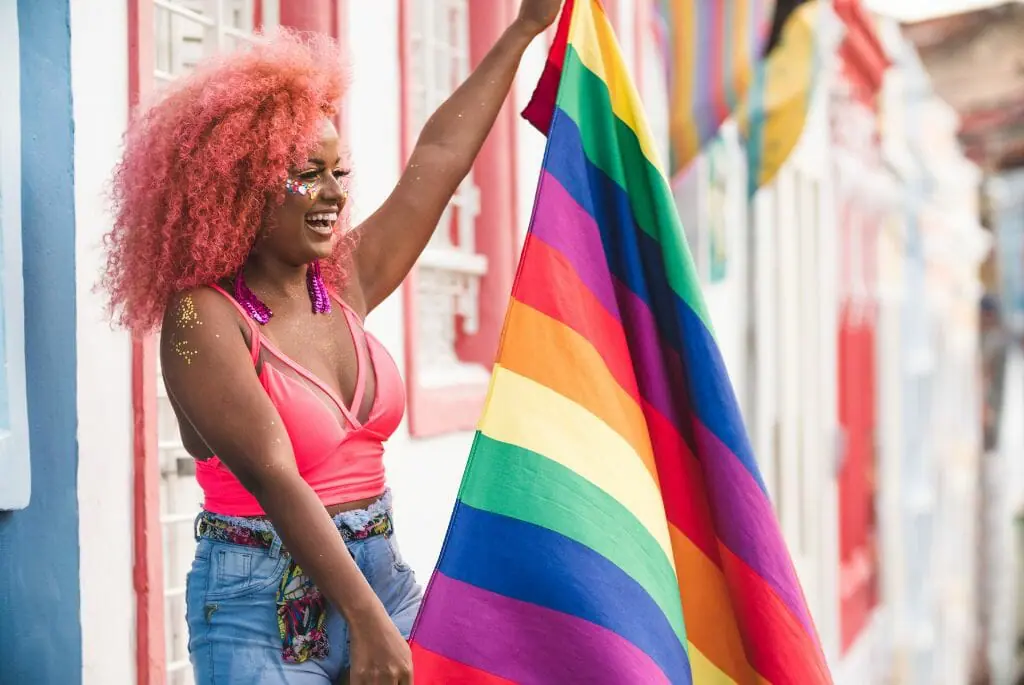
History Of LGBT Rights In The United Kingdom
The history of LGBT rights in the United Kingdom dates back to the 16th century, with the first legal target against male homosexuality coming in the form of the Buggery Act of 1533. This act criminalized sexual acts between men and led to the persecution of the LGBT community throughout the UK for centuries.
In the 19th and early 20th centuries, legislation such as the Labouchere Amendment of 1885 further reinforced the targeting of homosexual activity, leading to the widespread prosecution of individuals within the LGBT community. Notably, female homosexuality was never subject to the same legal restrictions, receiving less attention due in part to the entrenched social norms that prioritized male experiences and interactions.
Decriminalization of homosexual activity began in the 1960s, starting in England and Wales with the Sexual Offences Act in 1967. This major step in the quest for LGBT rights paved the way for further progression in Scotland and Northern Ireland, where decriminalization would later take place.
Since the turn of the 21st century, LGBT rights in the United Kingdom have gained increasing support and have become more established. However, it is important for both local people and tourists to remain vigilant, as the situation can change rapidly, and there may be bad actors in any society. The reader is advised to always seek current advice before traveling and, if necessary, consult relevant LGBT advocacy groups for up-to-date information and support.
As the fight for LGBT rights in the United Kingdom continues, a professional and authoritative approach is critical in both discussing historical progress and advocating for further change. It is crucial to recognize the strides that have been made while at the same time staying informed and erring on the side of caution to ensure the safety and well-being of all members of the LGBT community.

The LGBT Legal Situation In The United Kingdom
In the United Kingdom, LGBT rights have evolved throughout the years, with legislation covering various aspects such as the age of consent, same-sex marriage, adoption rights, and serving in the military. The legal situation varies slightly between England, Wales, Scotland, and Northern Ireland, with some differences in laws and regulations.
Age of Consent: The age of consent for sexual activity is the same for heterosexual and homosexual couples, being 16 years old in England, Wales, Scotland, and Northern Ireland.
Same-sex Marriage and Civil Partnership: Legalizing same-sex marriage in England and Wales occurred in 2014, followed by Scotland later the same year. In Northern Ireland, same-sex marriage only became legal in 2020. Civil partnerships have been available since 2004 for same-sex couples. Some progress has been made as the UK government is reviewing marriage rights for bisexual individuals in situations involving more than two partners.
Adoption Rights: Same-sex couples in the UK have the same adoption rights as heterosexual couples, with legislation permitting such in England and Wales since 2005, in Scotland since 2009, and in Northern Ireland since 2013.
Sexual Activity and Legal Recognition: Decriminalization of sexual activity between men occurred in 1967 in England and Wales, followed by Scotland in 1980 and Northern Ireland in 1982. The Buggery Act of 1533, which made male homosexuality punishable by death, has long been abolished. However, the subsequent Gross Indecency law, which replaced the Buggery Act, was only repealed in 1967.
Military Service: Discrimination based on sexual orientation in the armed forces ended in 2000, and individuals identifying as LGBT now openly serve in all branches of the UK military.
Gender Identity: Transgender rights have progressed in recent years, with the Gender Recognition Act of 2004 allowing individuals to change their legal gender. However, steps still need to be taken toward updating these rights, as the current system requires medical diagnosis, lengthy waiting periods, and sometimes extensive surgeries.
Equality Act: Passed in 2010, the Equality Act both consolidated and updated previous anti-discrimination laws, providing protection from discrimination based on sexual orientation, gender reassignment, and other grounds.
Tourists and locals alike should be aware of these laws and seek current advice before traveling. Situations can change rapidly, and though protections exist, remain vigilant as bad actors are present in every country. LGBT advocacy groups such as Stonewall and the LGBT Foundation can be useful resources for obtaining current and relevant information.
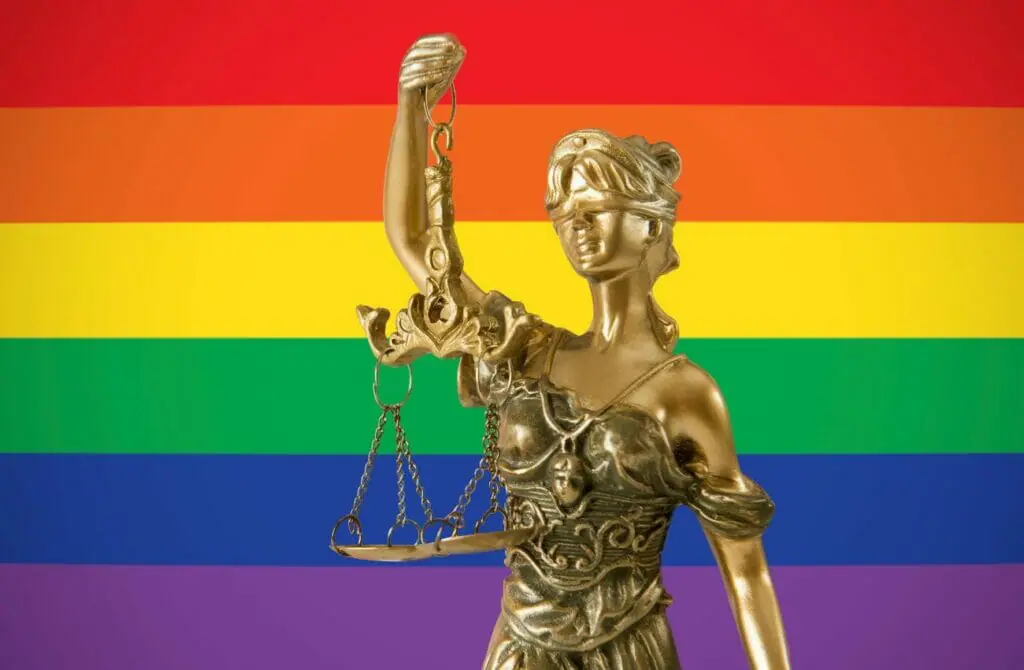

The LGBT Social Situation In The United Kingdom
In the United Kingdom, the social situation regarding LGBT rights has evolved significantly over the years. Great strides have been made in terms of the legal recognition of the rights of lesbian, gay, bisexual, and transgender people. This includes equal marriage rights, protection against discrimination, and the ability to change one’s gender identity legally without requiring surgery.
Despite these legal advancements, discrimination and violence against LGBT people still persist in various forms. Such challenges may present themselves in areas such as employment, housing, and even in day-to-day society interactions. It is essential for individuals, both locals and tourists, to remain vigilant and be aware of potential risks and bad actors.
Hate crimes and harassment targeting LGBT individuals are growing concerns in the United Kingdom. These acts of violence and discrimination may occur anywhere, including major cities like London, Manchester, and other urban centers. It is vital for the LGBT community and their allies to stay informed and seek assistance from relevant advocacy groups if necessary. Many groups work towards promoting respect, tolerance, and safety within the community, such as Stonewall, which advocates for LGBT rights in the UK.
On a positive note, some cities in the UK stand out as particularly welcoming and inclusive for the LGBT community. Brighton, for example, is known for its thriving LGBT scene, while other cities like Bristol, Cardiff, and Edinburgh are increasingly becoming more inclusive. However, it is crucial to keep in mind that situations can change rapidly, and an individual’s experience may vary, so exercising caution and seeking current information before traveling is always advised.
In conclusion, it is important to recognize that while the United Kingdom has made significant strides in promoting LGBT rights and equality, further work is needed to combat discrimination and violence. By staying informed and vigilant, both local residents and tourists can help contribute to fostering a more inclusive and respectful environment for all.

Trans Rights In The United Kingdom
In the United Kingdom, transgender rights have made significant progress in recent years, but challenges still remain. Transgender individuals, both locals and tourists, have the right to change their legal gender, subject to certain requirements. The Gender Recognition Act of 2004 outlines the processes through which a person can change their gender on their birth certificate, an important step for some transgender individuals.
Discrimination protections for transgender people in the UK are in place, ensuring that they are not treated unfairly in various aspects of life, such as employment, housing, and access to services. However, some disparities still exist, and transgender individuals may face barriers and prejudices from time to time, including occasionally from bad actors. It is essential to remain vigilant and informed about the current situation and ongoing developments.
As the situation can change quickly, travelers and residents should seek up-to-date advice regarding transgender rights and protections in the UK. Local advocacy groups, such as the UK-based Stonewall, can provide valuable resources and support for transgender individuals regarding their rights and address any issues they may encounter.
Healthcare for transgender individuals in the UK includes access to surgery and other treatments related to their gender transition, as well as IVF treatments for those facing fertility challenges. However, the availability and accessibility of these services may vary and can be subject to waiting times and regional differences.
In summary, the United Kingdom has made important strides in recognizing and protecting the rights of transgender individuals. Local residents and travelers should stay informed about current developments, remain vigilant against potential bad actors, and seek support from advocacy groups when necessary. As with any country, it is crucial for individuals to remain cautious and be aware of their rights while also being prepared for possible challenges and change.


The Future For The Queer Community In The United Kingdom
The future of LGBT rights in the United Kingdom seems promising as progress continues to be made in various aspects of legislation and societal acceptance. The Equality Act 2010 marked a significant milestone by consolidating existing anti-discrimination laws and providing comprehensive protection for LGBT individuals in areas such as employment, housing, and public services.
Marriage equality has been another significant achievement, with same-sex couples enjoying equal rights to marry and adopt children in most of the UK since 2014. However, there is still room for improvement, and it’s essential to continue working towards a truly inclusive society for all.
LGBT rights in the UK generally apply to both local people and tourists. Visitors should, however, remain vigilant and cautious when traveling, as situations can change rapidly, and local laws or customs may still affect their experience. It is advisable to seek up-to-date information on the regions to be visited before embarking on a journey.
To further strengthen the rights of LGBT individuals, recommendations include regularly reviewing and updating legislation, raising public awareness of the rights and needs of LGBT people, and promoting the inclusion of diverse sexual orientations and gender identities in public policy. It is important to carry on this momentum and ensure that existing protections are properly implemented and enforced.
Various LGBT advocacy groups play an essential role in driving positive change and protecting the rights of the community. These organizations work tirelessly to provide support, raise awareness, and lobby for improvements in legislation and policy. Engaging with relevant advocacy groups can help stay informed, contribute to the betterment of the situation, and give voice to the concerns and needs of LGBT individuals.
In conclusion, the future of LGBT rights in the United Kingdom appears to be on a progressive path, with ongoing advancements in legislation and a growing recognition of the importance of equality and inclusiveness. However, it’s crucial to remain steadfast in the pursuit of these goals and continue working towards a society that respects and values the rights of all its citizens, regardless of their sexual orientation or gender identity.
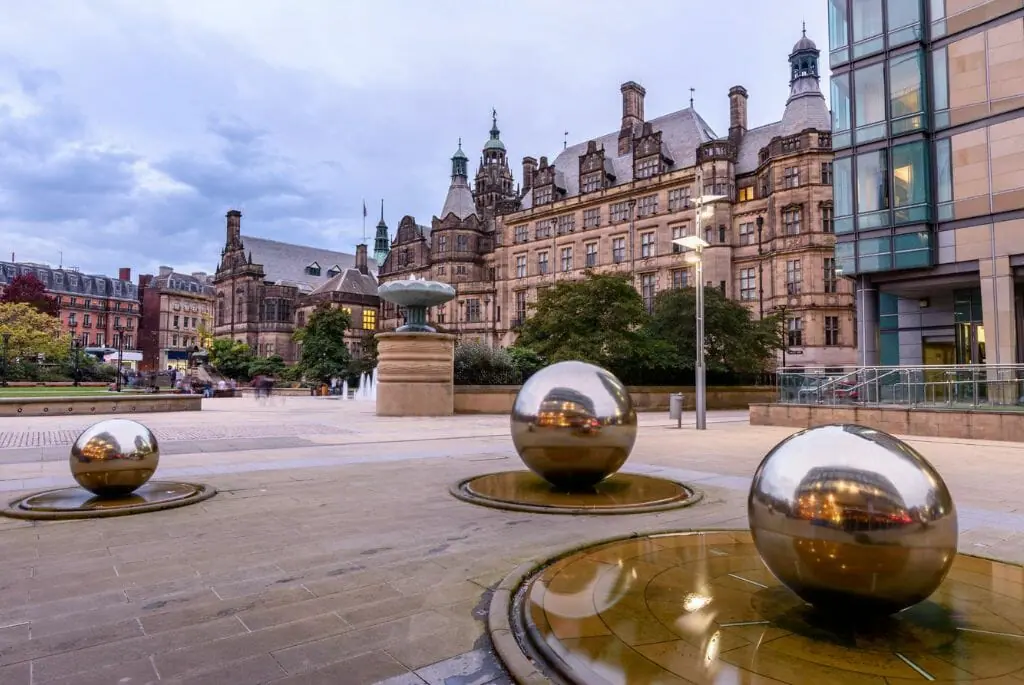
Protect Yourself While Travelling In Gay In The United Kingdom
In the United Kingdom, LGBT rights have significantly improved over the years. However, it is still essential for both local people and tourists to remain vigilant and informed about protection against violence, harassment, and hate crimes. While the UK is generally considered a safe and accepting country for the LGBT community, always bear in mind that situations can change quickly, and there may be bad actors in any country.
One important step toward ensuring safety is to stay updated on current information and advice before traveling. The ILGA-Europe and Pew Research Center are organizations that provide valuable resources and recommendations on LGBT rights and safety in various countries, including the United Kingdom. It is wise to consult these sources and other relevant platforms to gain a full understanding of the current environment for the LGBT community.
Protection against violence and discrimination is codified by law in the UK. However, it’s crucial to report any incidents to the appropriate authorities, as this allows them to track and respond to emerging trends. Additionally, seeking support from local LGBT advocacy groups can be beneficial, as they are often well-versed in the challenges faced by the community and can provide practical advice.
In the context of Christianity, it is essential to respect the diverse range of beliefs and cultural practices within the UK. While some religious groups may hold more conservative views on LGBT issues, many others are accepting and supportive. By navigating these different environments with sensitivity, one can minimize potential conflicts and foster greater understanding.
In summary, protecting oneself as an LGBT individual in the United Kingdom involves staying informed about current rights and protections, reporting any incidents of harassment or violence, seeking the support of local LGBT advocacy groups, and navigating cultural and religious diversity with sensitivity. Always remember to remain vigilant and adaptable, as situations may change.
